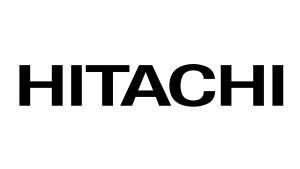Hitachi

Changing a Threat into an Opportunity
How did Hitachi transform a major threat into one of the biggest deals in the company’s history?
The Challenge:
I was the VP and General Manager for Hitachi Germany when suddenly, 72 hours before our annual global conference in Las Vegas, my team caught wind of a pending deal between our fiercest competitor and one of our most important customers, Deutsche Telekom. The deal threatened to replace Hitachi products and services all over the globe, and in only six weeks, it was set to close. Overnight our most important customer became the biggest threat to Hitachi’s business internationally.
Fortunately, the upcoming conference in Vegas presented a natural assemblage of global resources and people that we needed in order to tackle this problem head-on. We set aside 5 days to hunker down in a war room with engineers, technology functions, systems consultants, legal personnel, and people with intel on the customer from the past 15 years. Given the time constraints, we knew that week was our only chance at creating an effective counterstrike.
I’m thinking, “We’ve only got 5 days to do this thing, how are we going to get aligned for that kind of execution? This is a critical moment that will define the company’s future, so how are we going to perform at a level that parallels that urgency? This is a situation where even the best just isn’t quite good enough.”
The John Factor, From Opportunity to Successful Execution
On the first day of the conference, before we got started in the war room, John Foley was scheduled to address the executives as a keynote speaker. I was in the audience, and during the presentation, I just locked onto John. He had a calmness, a collectedness, and a certain “profoundness” that drew us in. Also, everything he said was directly applicable. Here was Hitachi, facing a challenge that demanded we become better than the best, and here I was, watching a former Blue Angel talk about our situation exactly –– where only the top .01% is going to make any difference.
During his presentation, John rolled out some elements of his Diamond Performance Framework, a system that makes high levels of achievement possible, and that’s when I had the idea of bringing him into our war room to work directly with the team. I got the go-ahead to bring John in from the Global Sales President, and from that first moment, we were at ‘mission critical’ status. I told John: “We have a situation, and we need your help. How would you like to come into the room?”
The amazing thing about John is that he was able to step right into that war room as if he’d done it thousands of times. He told a story. He got very specific. He used Hitachi terminology. He brought us back to our present situation with regard to Deutsche Telekom. Through his authenticity and his powerful delivery, John was able to kickstart that team in a way that would not have been possible otherwise. That became the absolute key in this deal: The John Factor.
The Result
In those five days after our meeting, we nailed down a 100-page document outlining a total of 392 million dollars in savings for Deutsche Telekom, and we did it with unity and precision that was straight from the Blue Angel’s playbook. That level of performance was exemplified by our follow-through. Once the document was complete, we had personalized copies hand-delivered to 18 of Hitachi’s top executives, all around the world, within a 4-hour window. That was the level of formality that the Blue Angel methodology brought to this project, and it allowed us to make a lasting impression.
What we created is probably one of the most compelling documents in the history of the IT marketplace. The document itself was incredibly valuable; it taught our customers things about their company that they didn’t even know. It was an offer they couldn’t refuse. They signed, and it turned out to be the biggest deal in Hitachi’s 101 years of doing business.
I’m not going to say that “we only won because we hired John Foley,” but you have to look at the perspective. By the time the contract was signed, we’d just been through 6 months of a change in culture. We’ve got six months of our guys on the ground using John’s terminology, saying “Glad To Be Here” every day. We’ve got people carrying the cards from John’s presentation for 6 months. And the crowning achievement from that time is that we won. You have to applaud the power and the sustainability of that kind of change.



Patrick D. Cowden